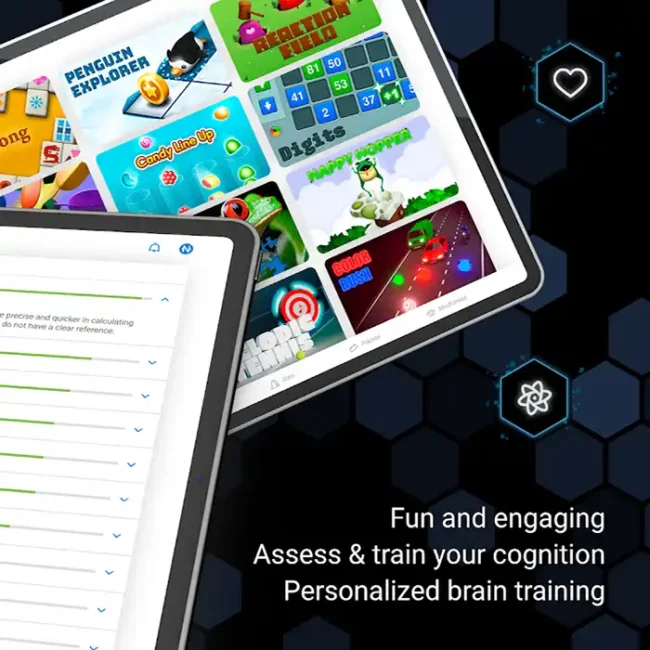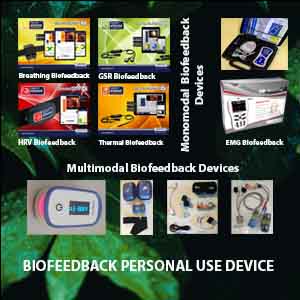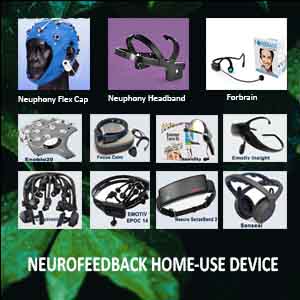Description
Neurosky Mindwave Effective Learner Set – Enhance Focus, Accelerate Learning, and Unlock Cognitive Potential
The Neurosky Mindwave Effective Learner Set is a revolutionary brain-training toolkit designed to elevate your cognitive performance. By combining the Neurosky Mindwave Mobile 2 EEG headset with the Effective Learner app, this set empowers users to monitor and improve their focus, attention, and learning efficiency in real-time.
How Neurosky Mindwave Works
At the heart of this system is the Neurosky Mindwave Mobile 2 headset, which utilizes EEG technology (dry EEG sensor positioned on the forehead (Fp1) and an ear clip reference) to detect and interpret your brainwave activity. The headset captures raw EEG signals and translates them into meaningful metrics like attention and meditation levels.
Paired with the Effective Learner app, users can:
- Track Focus Levels: Visualize your current focus through six color-coded levels, providing immediate feedback on your mental state.
- Analyze Study Sessions: Receive detailed session reports, including time plots and pie charts, to assess your learning effectiveness over time.
- Optimize Study Techniques: Utilize the EDAFIN Study Trainer, which combines the Pomodoro technique with personalized learning rhythms based on your brain activity.
The Effective Learner app offers two primary modes:
- Effectiveness Tracker: Displays real-time focus levels using a six-color code, providing immediate feedback on learning effectiveness.
- EDAFIN Study Trainer: Combines the Pomodoro technique with personalized learning rhythms based on brain activity, offering study tips and session summaries for improved planning.
To learn more about how Neurosky Mindwave works, how to use it, and other helpful details, please visit the Neurosky page.
Who Can Benefit
This set is ideal for:
- Students: Enhance concentration and retention during study sessions.
- Educators: Monitor and support students’ cognitive engagement.
- Professionals: Improve focus during complex tasks or meetings.
- Individuals with Attention Challenges: Gain insights and tools to manage and improve attention spans.
- Neurofeedback Enthusiasts: Exploring cognitive states and self-regulation techniques.
Neurosky Mindwave Technical Specifications
- Sensor Module: TGAM1
- Connectivity: Bluetooth/BLE dual mode with a 10-meter range
- Power: Single AAA battery (up to 8 hours of use)
- Compatibility: Windows XP/7/8/10, Mac OSX 10.8+, iOS 8+, Android 2.3+
- EEG Data Output:
- 12-bit raw EEG (3–100 Hz) at 512 Hz sampling rate.
- EEG power spectra (Alpha, Beta, etc.).
- eSense™ metrics for attention and meditation.
- Metrics: Outputs EEG power spectrums (Alpha, Beta, etc.), Attention, Meditation levels
- Physical Dimensions: 225mm x 155mm x 92mm (sensor arm up)
Effectiveness Backed by Research
Studies have demonstrated the efficacy of the Neurosky Mindwave in educational settings:
- Adaptive Learning: Research indicates that incorporating adaptive content, such as music and animations, in conjunction with NeuroSky’s EEG feedback, enhances attention levels in children with learning difficulties.
- Cognitive Attention Analysis: A study analyzing students’ attention during various learning activities found that the NeuroSky MindWave device effectively measured cognitive attention, providing insights into students’ engagement levels.
Neurosky Mindwave Key Benefits
- Real-Time Feedback: Instantly gauge your focus levels to adjust study strategies accordingly.
- Personalized Learning: Tailor study sessions based on your unique cognitive patterns.
- Enhanced Productivity: Identify optimal times for learning to maximize retention.
- User-Friendly Interface: Easy setup and intuitive app design make it accessible for all users.
- Comprehensive Reports: Session summaries for tracking progress over time.
Experience a transformative approach to learning with the NeuroSky MindWave Effective Learner Set. By understanding and harnessing your brain’s activity, you can achieve greater focus, improved memory retention, and enhanced cognitive performance.















